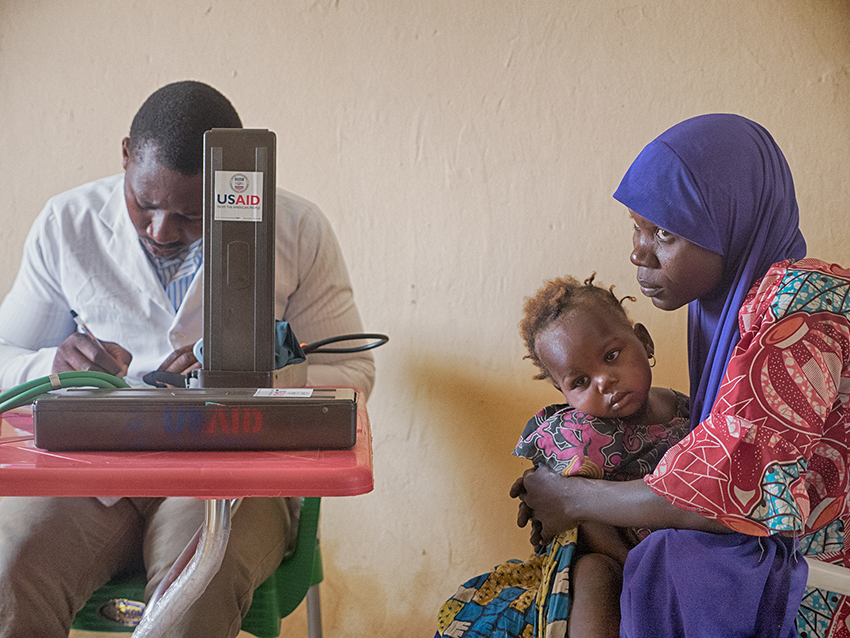
Photo Credit: Kunle Lawal/FHI 360
On August 3, 2017, FHI 360 will host an event, Building Resilient Communities in Changing Times, in Abuja, Nigeria.
FHI 360 has had a continuous presence in Nigeria for more than 30 years, and our programs have reached more than 20 million Nigerians. Over that time, our commitment to using science to improve lives has required us to adapt our programs and be flexible and creative.
Whether focused on health, education or gender, our activities in Nigeria are integrated and designed to produce results that go beyond project targets. As an example, our Strengthening Integrated Delivery of HIV/AIDS Services (SIDHAS) project has not only provided HIV testing, it has also provided skills training to people with HIV to enable them to earn income and support their families. When people with HIV receive regular health care, they can continue to thrive no matter what their HIV status may be. They are living examples of adaptation.
The ability to adapt is essential to international human development, because conflict disrupts planning in unanticipated ways. This has proven true in Nigeria, where we have adjusted existing programs or established new ones tailored to respond to the many challenges produced by conflict. Our programs have operated throughout the country, but the most striking examples are in northeast Nigeria, which has experienced unrest for the past eight years.
The ability to adapt is essential to international human development. Click To TweetWe have worked in Borno State since 2011. Due to the ongoing insurgency, people have moved from their districts to more secure areas. There are an estimated 1.9 million internally displaced people in the northeast, according to the United Nations Office for the Coordination of Humanitarian Affairs. Of the 21 health facilities where we worked, all but four were attacked by insurgents and rendered nonfunctional.
Because our clients could no longer come to us, we needed to go to them. We found many people living in camps for internally displaced persons, where no health care was available. The FHI 360 solution was to set up mobile clinics, outfitted with medication, diagnostic equipment and other supplies, that circulate among these camps. To date, the mobile clinics have screened more than 22,350 people for HIV, including 15,246 pregnant women. We are also providing antiretroviral treatment to 562 people with HIV. Without the intervention, the people in these camps would have no health care.
FHI 360 staff have remained in the northeast, even as the conflict intensified. Their reports of the dire circumstances made it clear that to maximize our impact, we needed to expand beyond our well-established HIV/AIDS work to provide other types of direct services. This meant expanding our role in the northeast to include a humanitarian response that addresses critical needs for water, sanitation and hygiene; primary health care; and protection for survivors of gender-based-violence. Today, with funding from the Office of U.S. Foreign Disaster Assistance, Shell, the United Nations High Commissioner on Refugees and the United Nations Population Fund, FHI 360 is providing critical care and services to thousands of internally displaced people, particularly in the local government areas of Dikwa and Ngala. This work has challenged us in ways we were not accustomed to, but the results make it worth the effort.
